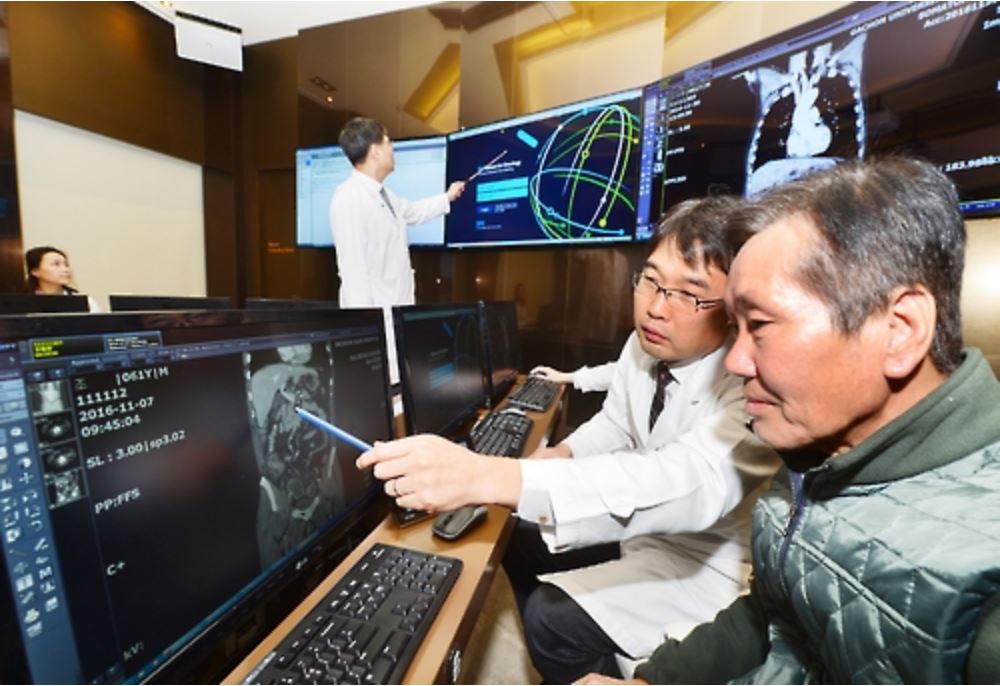
In Gil Medical Center, “Watson in Oncology”, a type of Watson that is specialized in detecting cancer is used. In other words, there are other types of Watson specialized in other areas but not oncology, such as radiology, endocrinology, law, or tax rules.
Since Alpha-Go of Google Deepmind won Google Deepmind Challenge with a dominating performance against Lee Se-dol, interest of public toward AI has drastically increased. Watson is also an artificial intelligence developed by a company, in this case, IBM.
Watson is an AI computer system that is capable of interpreting questions posed in natural language and answering with natural language. The name “Watson” is named after the first CEO of IBM, Thomas J. Watson.
The first time Watson showed its astonishing performance was in the quiz show “Jeopardy.” Though Watson had demerit in understanding the context of the clues, Watson won against two legendary Jeopardy winners, Ken Jennings and Brad Lutter, with a significant gap. During the quiz show, Watson was not connected to the internet and did not use techniques that humans often use, such as pressing the buzzer exactly before thinking out the answer.
Unlike IBM DeepBlue or Alpha-Go, which are specialized in a particular game, Watson is an AI that is able to be adjusted for various different fields. The first goal that Watson was aiming to achieve was defeating Ken Jennings on Jeopardy who made a 74-game run on Jeopardy. IBM successfully achieved that goal. The final goal of Watson is to provide an answer in human language to whatever question people ask. IBM said, "The goal is to have computers start to interact in natural human terms across a range of applications and processes, understanding the questions that humans ask and providing answers that humans can understand and justify.”
Watson’s algorithm is composed of five steps: analyzing natural language, identifying sources, finding and generating hypotheses, finding and scoring evidences, and finally merging and ranking hypotheses. Through these steps, Watson can understand the questions made by humans and draw out the most valid solution according to its database.
Regarding the hardware of Watson, Watson is able to process as many as 500 gigabytes per second. Though it seems like an overwhelming performance compared to the human brain or personal computers, Watson’s benchmark results show that it is only half as fast as the cut-off line for the Top 500 Supercomputers list. This means that Watson can be a better, faster question answering system if Watson’s hardware is improved in the future.
As we can see in the case of Watson, AI is already starting to be utilized in our real lives. Now it is time to start thinking about lifestyle changes after AI becomes highly involved in human life.
м Җмһ‘к¶Ңмһҗ © нҸ¬н•ӯкіөлҢҖмӢ л¬ё л¬ҙлӢЁм „мһ¬ л°Ҹ мһ¬л°°нҸ¬ кёҲм§Җ


